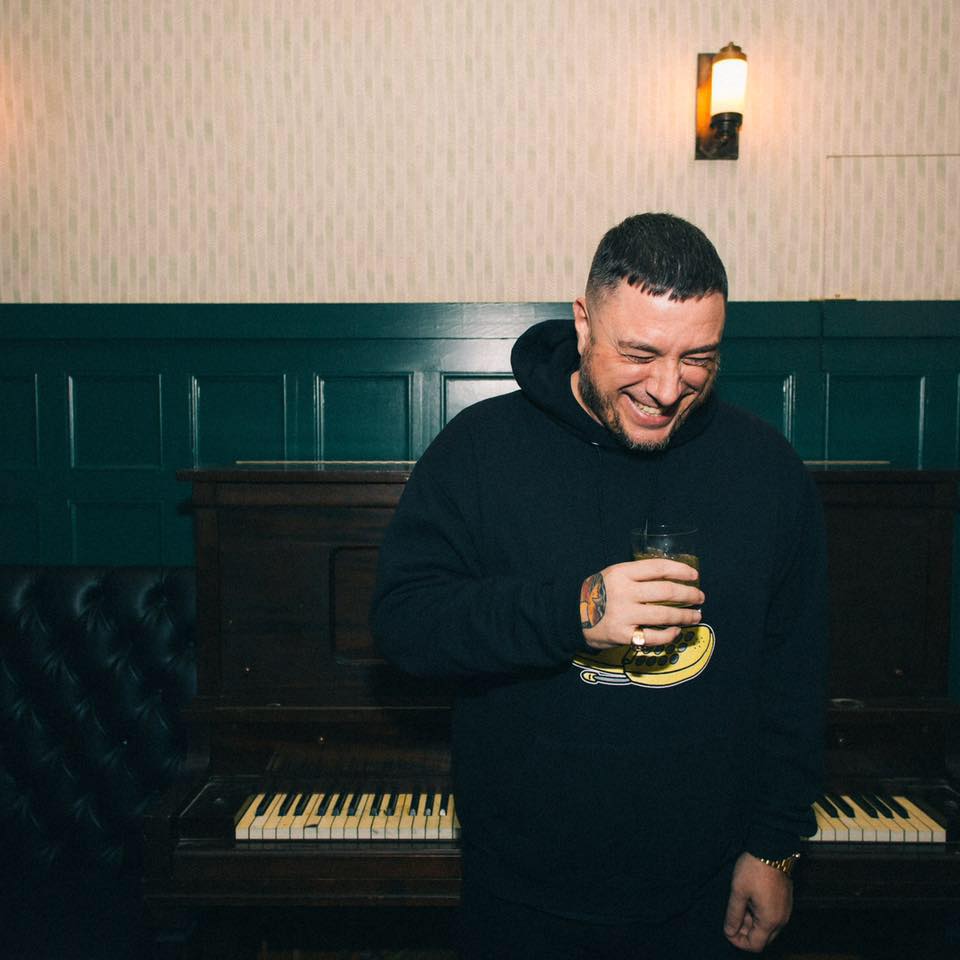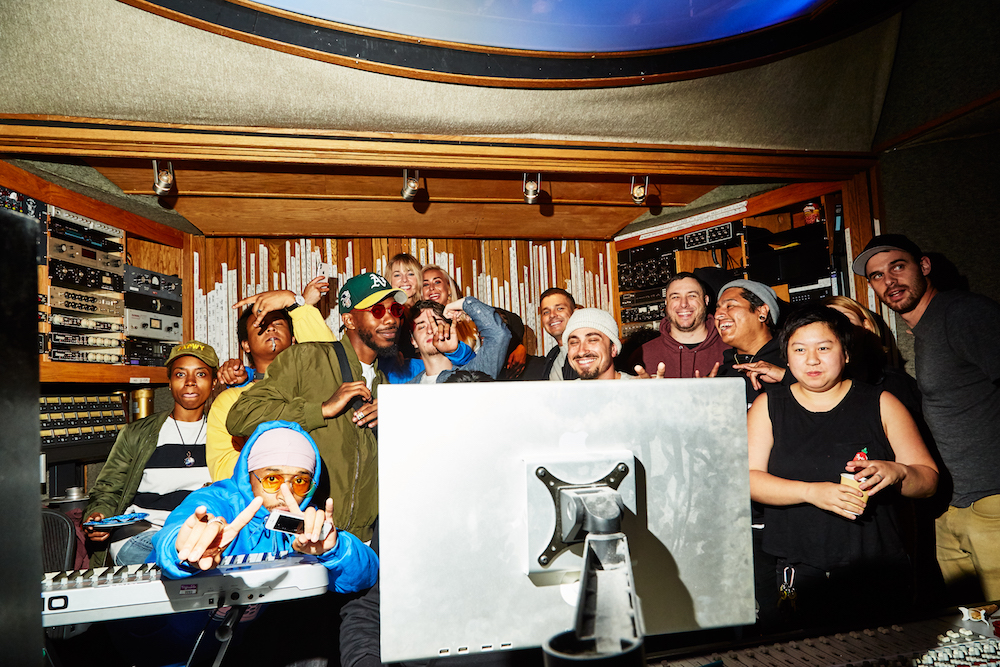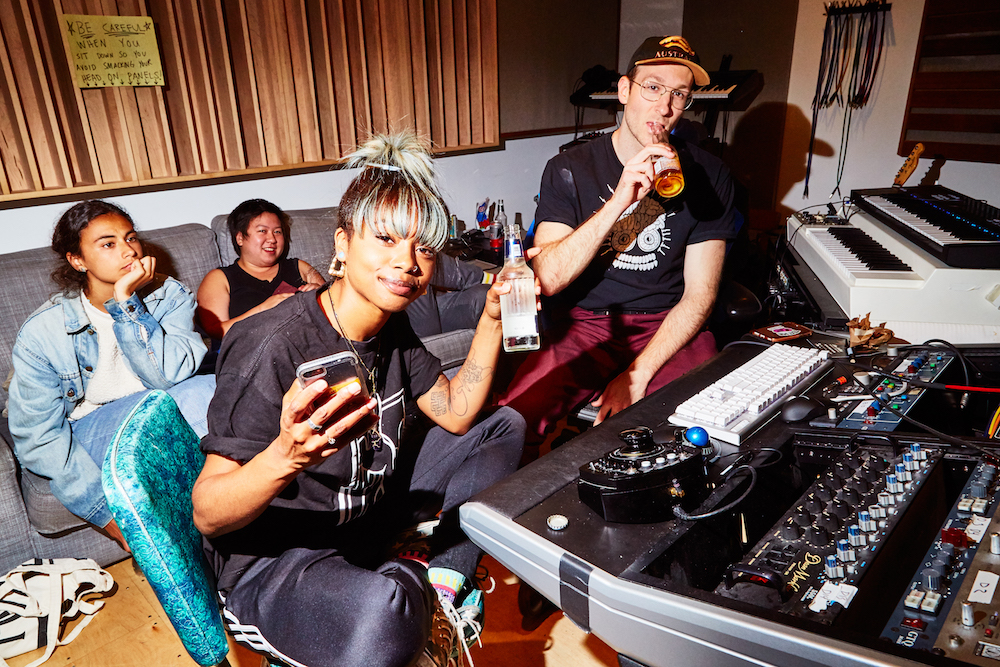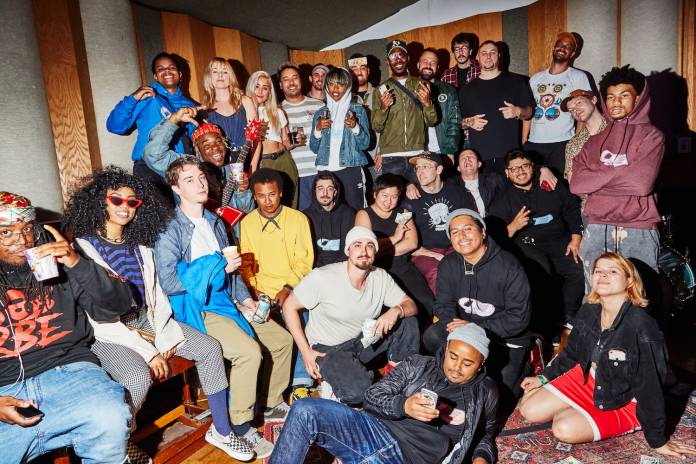ALL EARS The first thing you hear when you call Patrick Brown is “please enjoy this ringback tone,” followed by Louisiana rapper Kevin Gates belting the hook to his hit “2 Phones.”
Brown probably won’t answer. He doesn’t pick up phone calls; he’s usually in the studio anyway. The name of his record label is Text Me, one of the most productive outfits in San Francisco: Brown wanted to name it after something he always says.
Brown, 40, came of age in New York during the hip-hop boom of the ‘90s, and his musical education had as much room for Prince Paul as Paul Simon. This eclecticism is reflected not only in the roster of Text Me’s dozens of artists, but also on his approach to breaking down genre walls and production barriers—all in service of putting records out from a broad spectrum of local artists (and getting those artists paid). He moved to San Francisco in 1998 to study graphic design at Academy of Art. Then he studied film. Then he ran an art gallery.
Finally, he settled on the one constant in his life: music. After an early attempt at starting a label, he enrolled in a two-year program at music production school Ex’pression in 2002 before getting an internship at venerable Mission studio Different Fur, which just celebrated its 50th anniversary. He now lives and works above the studio, in a space that seems to consist mostly of keyboards.
Before releasing music, Text Me functioned as a song-publishing company while also putting on shows—notably booking cult-favorite Chicago rapper CupcakKe at Eli’s Mile High Club for one of her earliest Bay Area shows.
The label now boasts a post-genre roster with everyone from punk band Coke and oddball pop group Dot Vom to Christian rapper Van Gammon. Many of the label’s artists also serve as in-house writers and producers, a rarity for a small label in an indie scene that often prides itself on DIY authenticity.
Brown’s stylistically itinerant vision is reflected as much in the music he puts out as the shows he puts on—including tapping Text Me punk band Coke to open for infamous Atlanta rapper Soulja Boy at the Mezzanine on Friday, October 5.
“A lot of people are like ‘oh shit, that’s a punk band opening for Soulja Boy!’,” says Brown. “But it’s the same kind of energy. That’s the kinda show I wanna go see.” We spoke with him about
48 HILLS How does a record on Text Me typically come together?
PATRICK BROWN Our writers can book a six-hour block and come in, but there are also collaborations happening. Someone will make something and one of the singers will be there and it kinda happens organically. You might come out of a session with an instrumental and a hook and then step back, rework it.
Normally someone comes in and says “I have five songs I wanna finish,” or “I have five songs and I wanna make it ten songs,” and we’ll block an amount of time, they can get as much done as they want. If they want my opinion they get my opinion; we get it mastered; we’re done. We have access to the studio, so that removes a lot of steps.

48H It’s unusual for a small indie label to have an in-house roster of writers and producers.
PB That’s a classic model. It’s what Motown was, it’s what those old studios all did. Even with EMI and the Beatles, George Martin was a house producer for classical music.
My thing has always been how to set artists up to make money. I think it’s great when someone wants to be purely an artist, but unless you blow up it’s a hard road to take. Songwriting is like being a painter and taking commissions on the side.
My whole thing is trying to set it up so people have income. Musicians are obsessed with getting on a label and having it release a record. Half the time they don’t even know whether or not their shit’s published. They don’t know there are performance royalties they should sign up for and collect. They’re not huge amounts of money, but it’s at least a check.

48H With the do-it-yourself focus on writing your own songs and playing your own instruments in indie music, some people might call this model inauthentic.
PB Why, because there’s a mixing of styles, because more than two people wrote the song? How is that inauthentic? We did a writing camp recently, we released a mixtape Group Chat: A Back To School Mixtape, we had 40 people rotating between three rooms. And that was fun! No one’s like “whose song is this?”
Kanye is always a loaded example, but when he made My Beautiful Dark Twisted Fantasy he rented a studio in Hawaii, he put a producer in each room, he flew everyone out to work nonstop. If he wants to bring out the top rappers in the industry and the top producers, he’s still leading it. If anything, people say he’s overly involved. Even if you have DJ Premier in the room he’s still telling DJ Premier what to do.
48H What are the biggest misconceptions artists have about the music industry?
PB I don’t think people should be overly obsessed with the business end of things, but I think it’s a mistake to not learn about it at all. If you get to a certain point in your career you need a manager, a label, a booking agent. But starting out you don’t need all those things. Sometimes they’re prohibitive. You could get a manager because you think you need a manager and your manager could be blowing opportunities for you because they don’t actually know what they’re doing.
People should be really cautious of documents, especially if you don’t understand them. Every musician should find a lawyer that should review contracts for them for a couple hundred bucks. One of my goals is making sure people educated in this field.

48H What was the impetus for the show with Soulja Boy?
PB I started talking about dreaming bigger with shows. What would I wanna see? We were looking into the idea of Soulja Boy for the Dipset reunion, but that was recently booked, so we said “let’s get the fucking Soulja Boy show!”
For a lot of people we work with he’s a legend. He helped create the Internet music sound and style and direction that everyone goes in now, whether they want to admit it or not. One of things he credits with blowing him up was he’d go on these peer-to-peer file-sharing sites and name his songs after the top search. So people would download a song they thought was some other song and they’d be like, “What the fuck is this?” Then they’d be like, “This is tight!”
He’s not hurting anyone, no one’s paying for it. I love shit like that. He’s super influential in that way. And it’s a good show for us to establish where our brains are at with things.
TEXT ME RECORDS PRESENTS SOULJA BOY
Fri/5, 9pm, $25-$30
Mezzanine, SF.
More info here.







